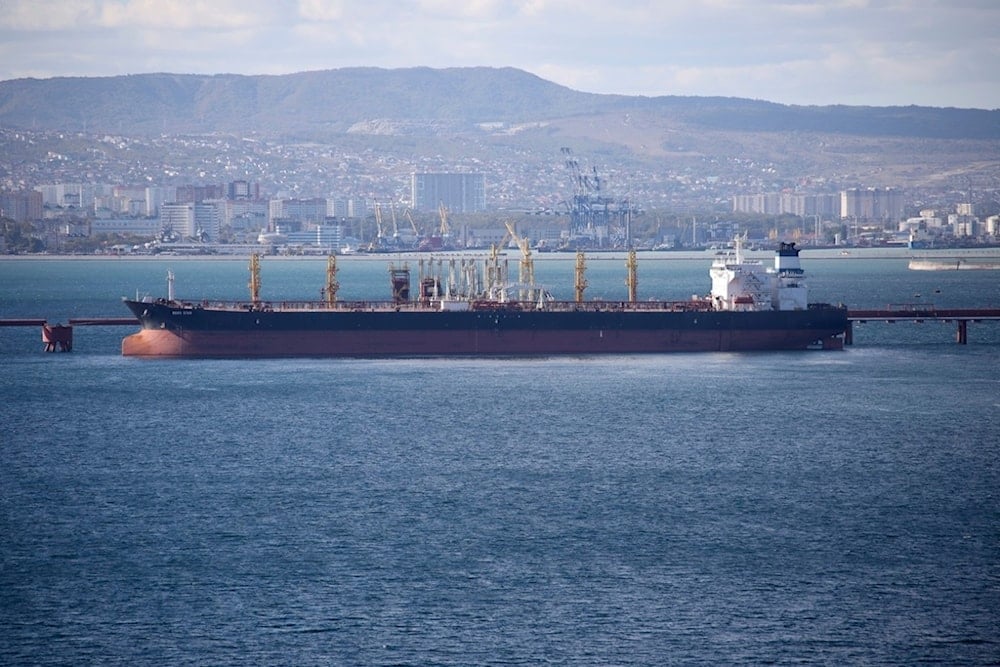US threatens new tariffs on Russian oil buyers after Moscow ultimatum
Analysts and diplomats warn that Washington’s aggressive stance could have unintended consequences.
-

An oil tanker is moored at the Sheskharis complex, part of Chernomortransneft JSC, a subsidiary of Transneft PJSC, in Novorossiysk, Russia, on Oct. 11, 2022 (AP Photo, File)
The United States has ramped up its economic campaign against Russia by threatening third-party nations with punitive tariffs if they continue purchasing sanctioned Russian oil, marking a significant escalation in Washington’s efforts to coerce a ceasefire in the Ukraine conflict.
US Treasury Secretary Scott Bessent, speaking to reporters on Tuesday, issued a blunt warning: "I think anyone who buys sanctioned Russian oil should be ready for this." He added that the initiative has support from key Western partners: "We would expect most of the Western allies, who have been supporting Ukraine, to follow on that." According to US officials, Canada and multiple European governments are preparing to impose similar penalties on Russian oil buyers.
The latest remarks build on President Donald Trump’s July 14 ultimatum, in which he pledged to impose 100% tariffs on Russian imports and extend those penalties to countries still doing energy business with Moscow. Trump initially gave a 50-day deadline for a ceasefire agreement between Russia and Ukraine but slashed that window to just 10 days on Tuesday, underscoring a dramatic shift in strategy.
Secondary sanctions as a weapon
The move marks a turn toward secondary sanctions and trade coercion, with Washington seeking to isolate Moscow not just through direct punishment but by pressuring its remaining commercial allies. Bessent’s warning comes amid broader talks of synchronizing measures with NATO-aligned states, as part of a unified Western economic front.
However, analysts and diplomats warn that Washington’s aggressive stance could have unintended consequences. Past threats of similar penalties, such as those targeting buyers of Venezuelan oil, were inconsistently enforced. A new wave of tariffs on Russian crude could drive global oil prices higher, spark inflationary shocks, and disrupt energy security in Asia, Africa, and Latin America, where Russian supplies remain essential.
Despite these risks, Trump’s administration appears unfazed. Backed by a growing bipartisan consensus in Congress, the White House sees expanded tariffs as a core pillar of its foreign policy leverage.
Read more: US bill proposes 500% tariffs on nations trading with Russia
Diplomatic breakdown
The economic escalation follows a breakdown in Ukraine peace talks and a growing sense in Washington that Russia is not engaging in good faith. Trump, speaking from Scotland on Monday, said, "I’m not so interested in talking anymore," referring to a potential meeting with Russian President Vladimir Putin. He added: "It seemed we were heading toward peace, then suddenly missiles are flying into Kiev."
Moscow, for its part, accuses the West of obstructing negotiations and fueling conflict. Kremlin spokesperson Dmitry Peskov recently stated, "All proposals for dialogue have been rejected, both by Ukraine itself and by Westerners," blaming Washington and its allies for escalating rather than resolving tensions. Russian officials continue to argue that NATO’s backing has transformed Ukraine into a Western proxy war.
With a new tariff deadline looming and ceasefire prospects dwindling, the global economic landscape stands at a crossroads. Washington’s attempt to weaponize trade may yet shift political calculations, but it also risks inflaming energy markets and alienating nations reluctant to choose sides.

 3 Min Read
3 Min Read











